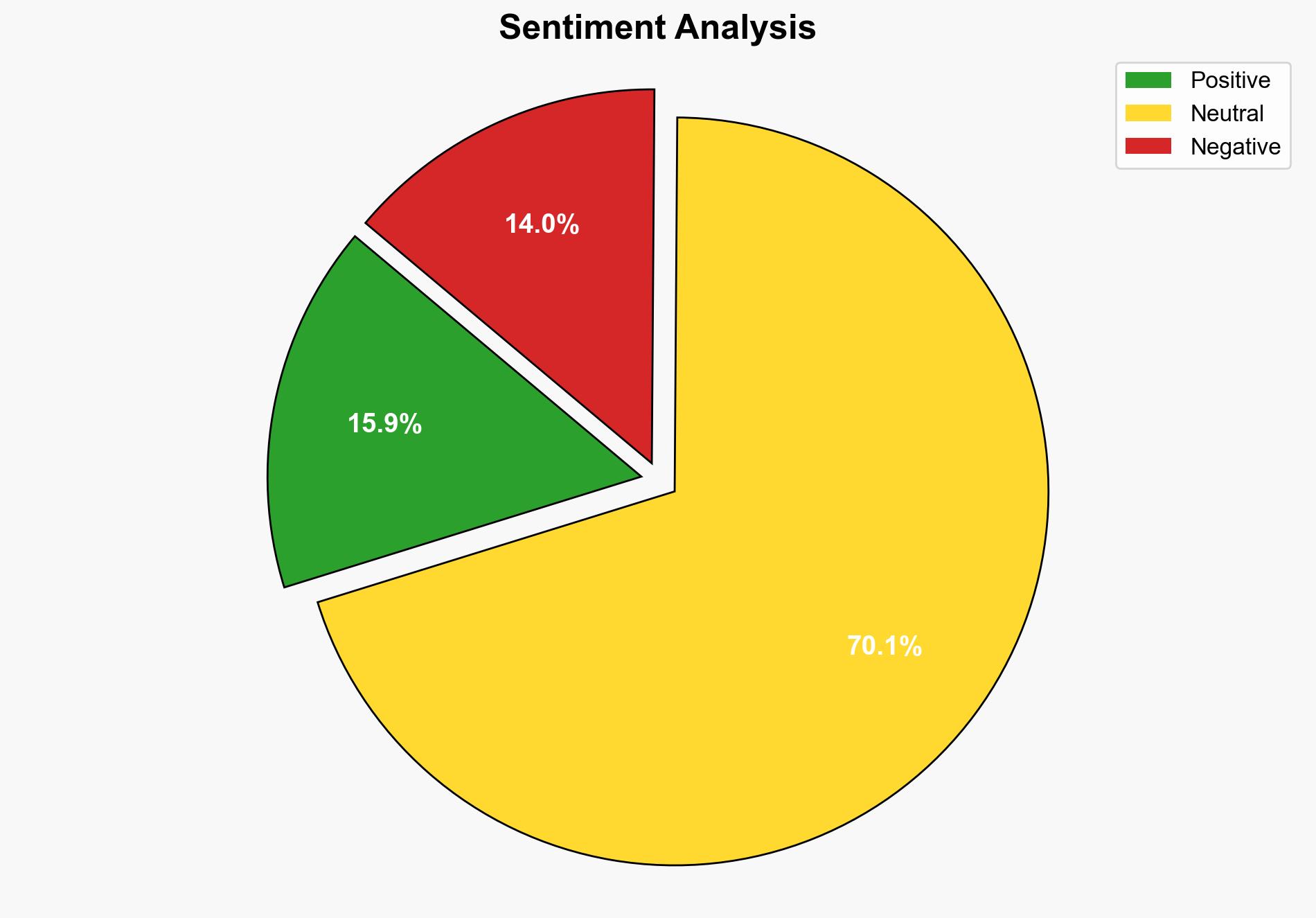Supreme Court hears Trump tariffs case justices appear skeptical of his power – ABC News
Published on: 2025-11-05
Intelligence Report: Supreme Court hears Trump tariffs case justices appear skeptical of his power – ABC News
1. BLUF (Bottom Line Up Front)
The Supreme Court’s skepticism regarding the extent of presidential power to impose tariffs under the International Emergency Economic Powers Act (IEEPA) suggests a potential limitation on executive authority. The most supported hypothesis is that the Court may rule against the broad interpretation of presidential power, reinforcing congressional authority over tariffs. Confidence level: Moderate. Recommended action: Monitor the Court’s decision closely, as it could set a precedent affecting future executive actions and international trade negotiations.
2. Competing Hypotheses
– **Hypothesis 1**: The Supreme Court will rule that the president does not have unfettered authority to impose tariffs under the IEEPA, reinforcing congressional power over taxation and trade.
– **Hypothesis 2**: The Supreme Court will uphold the president’s authority under the IEEPA, allowing for broad executive discretion in imposing tariffs during declared emergencies.
Using ACH 2.0, Hypothesis 1 is better supported by the skepticism expressed by key justices, including concerns about executive overreach and the constitutional assignment of tax power to Congress.
3. Key Assumptions and Red Flags
– **Assumptions**: The Court’s decision will be based on constitutional interpretation rather than political considerations. The IEEPA’s language is sufficiently clear to guide the Court’s ruling.
– **Red Flags**: Potential bias in interpreting the IEEPA’s scope; the possibility of political influence affecting judicial decisions. Lack of clarity on what constitutes a “national emergency” under the IEEPA.
4. Implications and Strategic Risks
A ruling limiting presidential tariff authority could shift power dynamics between the executive and legislative branches, affecting future trade policies and international negotiations. It may also prompt legislative action to clarify or amend the IEEPA. Conversely, upholding broad executive power could lead to increased unilateral trade actions, potentially escalating trade tensions and impacting global economic stability.
5. Recommendations and Outlook
- Monitor the Supreme Court’s decision and prepare for potential legislative responses.
- Engage with international trade partners to mitigate potential fallout from increased U.S. tariff actions.
- Scenario Projections:
- Best: Court limits executive power, leading to balanced trade policy development.
- Worst: Court upholds broad executive power, resulting in increased trade tensions.
- Most Likely: Court imposes some limitations on executive power, prompting legislative clarification.
6. Key Individuals and Entities
– Donald Trump
– John Roberts
– Neil Gorsuch
– Samuel Alito
– Neal Katyal
– John Sauer
7. Thematic Tags
national security threats, international trade, executive power, constitutional law





